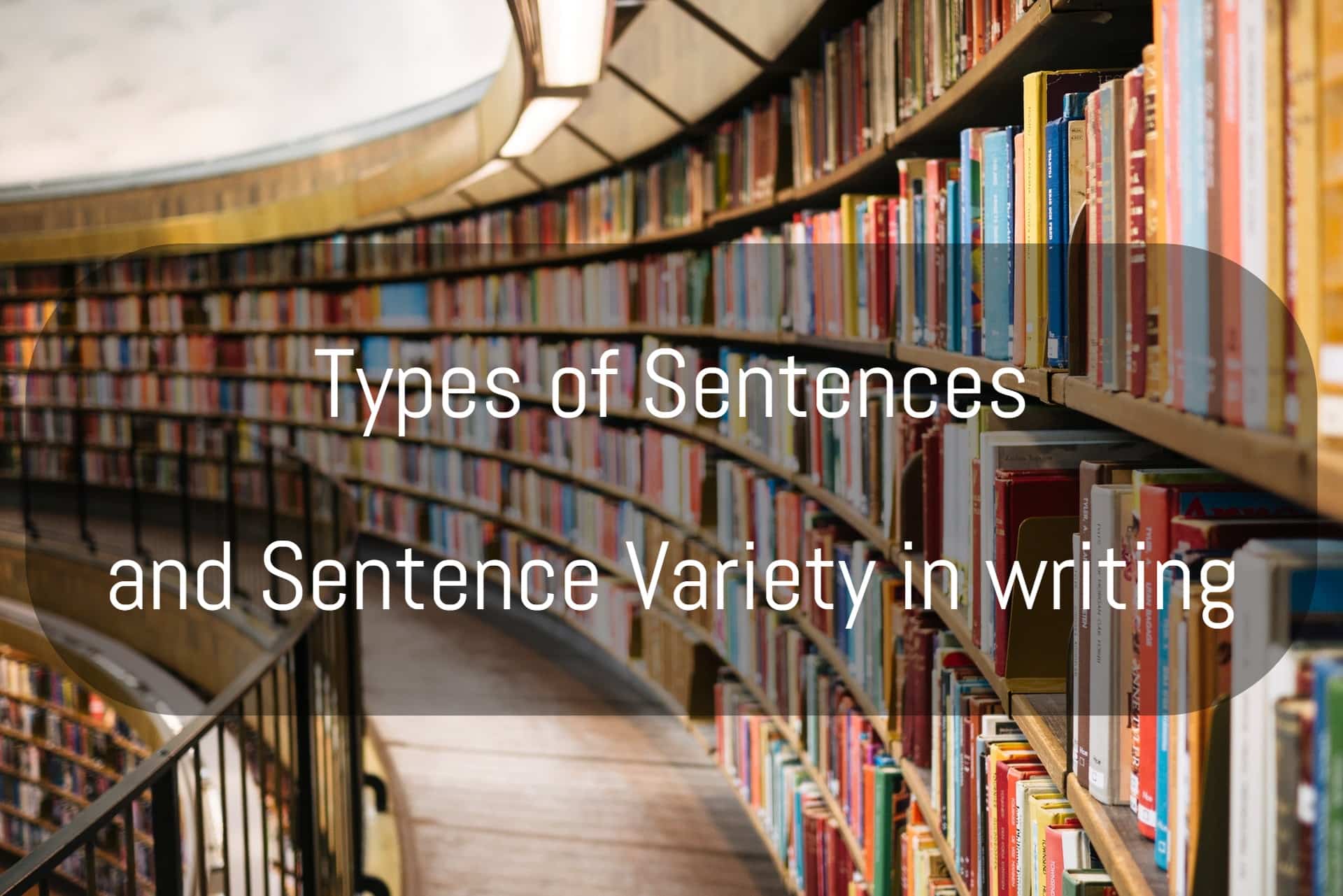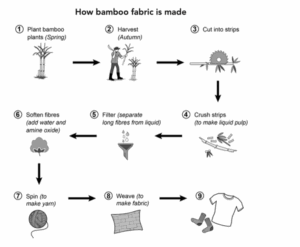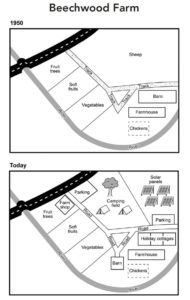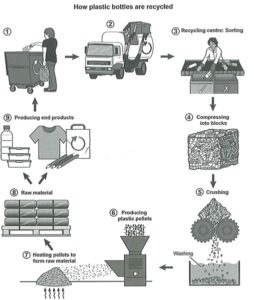Variety is the key to better writing and speaking. If you keep writing short and simple sentences, your work will look rushed. On the other hand, if you only use long, complex sentences, you will risk making your reader confused and unable to fully understand what you want to convey. In this article, you will learn how many types of sentences are there in English and how you can use them properly to add variety to your writing.
There are four types of sentences in English: interrogative, exclamatory, imperative, and declarative. The fourth type (declarative) will be our focus here because it is the most common one and is used in formal essays like the ones in IELTS. Therefore, we will discuss how to make simple, compound, complex, and compound-complex declarative sentences to add variety to your writing.
Interrogative sentences
These sentences ask questions, and we use question marks at the end of them. Professional writers use them at the beginning of their articles to make readers interested in what is to come, but when it comes to academic essays in exams like IELTS or TOEFL, it is not appropriate to use such sentences.
Examples:
- Why do some people never use public transportation?
- Will vaccination be enough to return to normality?
Exclamatory sentences
These sentences are like declarative sentences. The only difference is that they express strong emotions like anger, fear, surprise, etc. They are mainly used in informal writing, written dialogue, or storytelling. Never use them in academic essays.
Examples:
- She shouted, “WATCH OUT!”
- I ordered a pizza, not a hamburger!
Imperative sentences
When you tell/order someone to do something, you use these sentences. You can also use them to give advice or instructions. These sentences look like they are missing a subject, but they are, in fact, complete sentences.
Examples:
- Go up the street and then turn left.
- Please take a seat.
- Take lots of water and a map when you go hiking.
Note: You can use exclamation marks with them to give a forceful command.
Examples:
- Don’t open that door!
- Sit down and keep quiet!
Declarative sentences
These sentences are the most common type of sentences in English because you can use them to give your opinion or a piece of information. They can have simple, compound, complex, or compound-complex structures, making them the most appropriate choice for academic essays and formal writing.
Before discussing these sentences in more detail, you need to be familiar with independent and dependent clauses. The following is a short explanation, but read this if you want more detail.
Question: What is a clause?
Answer: A clause is a group of words that include a subject and a verb. An independent clause is a complete sentence with a period at the end. It is called independent because it doesn’t need anything else to be complete.
Examples:
- I need to call my friend.
- You need to learn the difference between a dependent and an independent clause.
- You can play any games you like.
That said, if you want to add more information to an independent clause, you need to use a dependent clause.
As the name suggests, a dependent clause cannot stand alone and needs an independent clause to be complete. They usually start with words like because, after, when, who, until, since, if, etc.
Examples of dependent clauses:
- because I’m worried about him
- if you want to learn different sentence structures
- After you have done your chores
As you can see, they need something more to convey a complete thought:
- I need to call my friend because I’m worried about him.
- If you want to learn different sentence structures, You need to understand the difference between a dependent and an independent clause.
- After you have done your chores, you can play any games you like.
- I like to hang out with people that I’m comfortable with.
Now that you are familiar with dependent and independent clauses, let’s return to our main discussion of different sentence structures.
As mentioned earlier, a declarative sentence may be formed in four ways:
Simple sentences
A simple sentence is only one independent clause. We use these sentences when we want to convey an opinion clearly without causing any confusion in our readers. Therefore, it is best to write your main ideas in simple sentences and use other structures for your examples and supporting sentences. You can make simple sentences in four ways:
- One subject and one verb:
Cell phones have become an essential part of our lives.
2. Two subjects and one verb:
Cell phones and computers have become an essential part of our lives.
3. One subject and two verbs:
James came late and didn’t have dinner.
4. Two subjects and two verbs:
James and I played online games all night and had fun.
Compound sentences
When you join two or more simple sentences (independent clauses) using coordinating conjunctions (for, and, nor, but, or, yet, and so), you make compound sentences.
Examples:
- Maria thought the party was at 8, but I thought it was going to start at 9.
- I stayed up all night yesterday, so I feel tired today.
- I am over the moon, for I passed the test, and I didn’t even cheat this time.
Note 1: As you can see, we use a comma, not a semicolon, before the coordinating conjunctions to separate the clauses in a compound sentence.
Note 2: A compound sentence can have as many clauses as you want, but try not to include more than three if you want to have good coherence in your work.
Note 3: You can make a compound sentence without coordinating conjunction. In that case, you should use a semicolon between the clauses, and the two sentences should be closely related.
Example:
With coordinating conjunction: Everyone came late to the party, but Susan came early.
Without coordinating conjunction: Everyone came late to the party; Susan came early.
Complex sentences
Simply put, when you join an independent clause with one or more dependent clauses, you make a complex sentence. There are three ways you can make a complex sentence:
Using Adverbial clauses
An adverbial clause is a dependent clause that acts as an adverb. It usually starts with subordinating conjunctions. They are words or phrases like when, until, if, unless, as soon as, because, since, in order to, even though, while, even if, etc. that join an independent and a dependent clause.
Note that when an adverbial clause comes first, you should separate it from the independent clause with a comma.
Examples:
- since I wasn’t in town, I canceled the meeting.
- She traveled abroad despite the fact that her doctor had told her to rest.
- Even though he is 40 years old, nobody takes him seriously because he always acts childish.
Question: If we switch the place of a dependent clause and an independent clause, will it affect the meaning? In other words, what is the difference between the sentences below?
- Since I wasn’t in town, I canceled the meeting.
- I canceled the meeting since I wasn’t in town.
Answer: They both have the same meaning. However, the first one emphasizes that the speaker wasn’t in town, but the second one emphasizes that he/she canceled the meeting.
Remember this: The beginning of a clause is where you should put your emphasis. Therefore, you should try to put the most important information at the beginning of your sentences.
Note: As you can see, an adverbial clause refers to a time, place, reason, or a condition like an adverb.
Using noun clauses
A noun clause is a dependent clause that plays a noun’s role. It usually starts with words like who, what, how, whatever, where, which, whichever, whether, whichever, whoever, whom, why, that, and where.
Examples:
- Pick whatever you want.
- I know that hard work pays off.
- I can’t imagine what you have been through.
- I like what I see.
Explanation: The bold parts are called noun clauses. One way to recognize them is to replace them with something, a pronoun, or a noun:
- Pick something.
- I know you.
- I can’t imagine it
- I like the show.
Using relative clauses
We have already discussed relative clauses in this article. Here are some examples:
- The people who live in urban areas have busier lifestyles.
- My grandmother, who is 85 years old, gave me excellent advice yesterday.
- I don’t like the music that you are listening to loudly.
Question: What is the difference between noun clauses and relative clauses?
Answer: Noun clauses play the role of nouns, but relative clauses, also known as adjective clauses, describe nouns. For example, take a look at the examples above. Can you replace the bold parts with a noun? The answer is no. So, they are not noun clauses.
Compound-Complex sentences
These sentences are made when you join a complex sentence with a simple or compound sentence.
Examples:
Complex sentence + simple sentence:
I came home when you were fast asleep, but I didn’t want to wake you up.
Complex sentence + compound sentence:
I came home when you were fast asleep, but I didn’t want to wake you up, so I just left.
Final note: Varying the sentences’ length in your essays is very important for your work’s cohesion and coherence. Knowing how to use different sentence structures well takes time and practice. So, keep practicing and seek feedback from experts to improve your writing skills.
Follow us on YouTube for more tips and resources.








